10 things you didn't know about the White House kitchen
Talia Lakritz

- The White House features three kitchens, two pantries, and a Chocolate Shop.
- For the first time, both the White House executive chef and executive pastry chef are women.
- The president's desk has a button that can be used to order refreshments from the kitchen.
The White House features three kitchens: the main kitchen, a pastry kitchen, and a family kitchen in the Executive Residence.
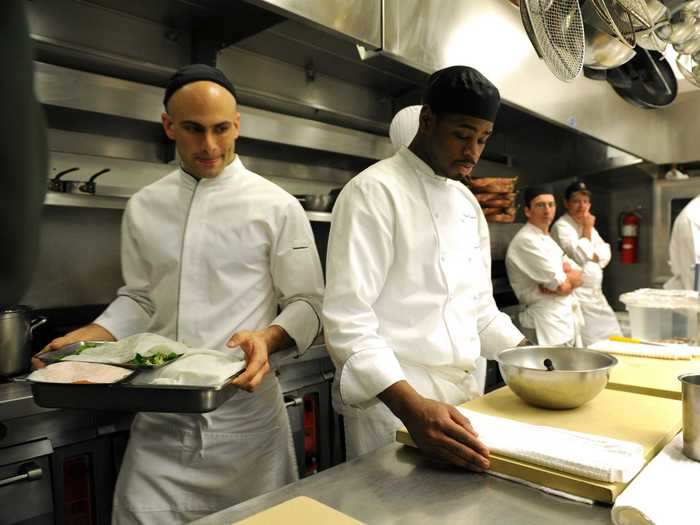
The main White House kitchen is located on the ground floor. Jacqueline Kennedy converted a sitting room into a chef's kitchen in 1961, and the Clintons turned it into a more traditional family kitchen. The pastry kitchen was also added during the Clintons' time in the White House, between 1992 and 1993.
There are also two pantries - a kitchen pantry attached to the main kitchen on the ground floor, and a serving pantry on the same floor as the dining rooms.
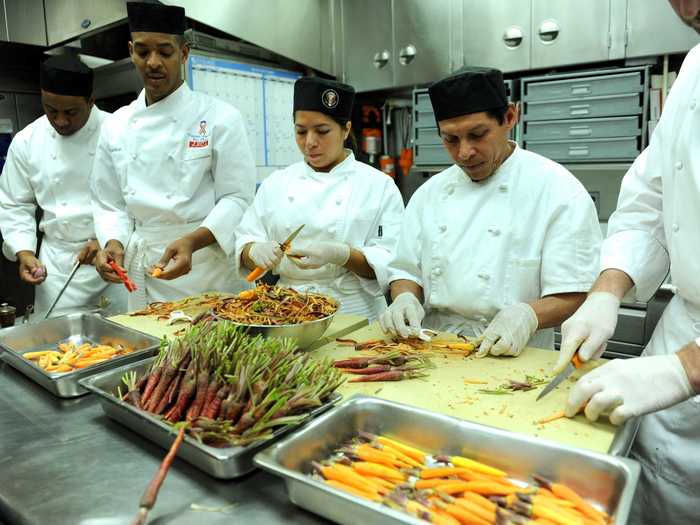
Kitchen staff use two dumbwaiters, a small elevator, and a spiral staircase between the pantries to transport food from one floor to another.
The main kitchen features the Chocolate Shop.
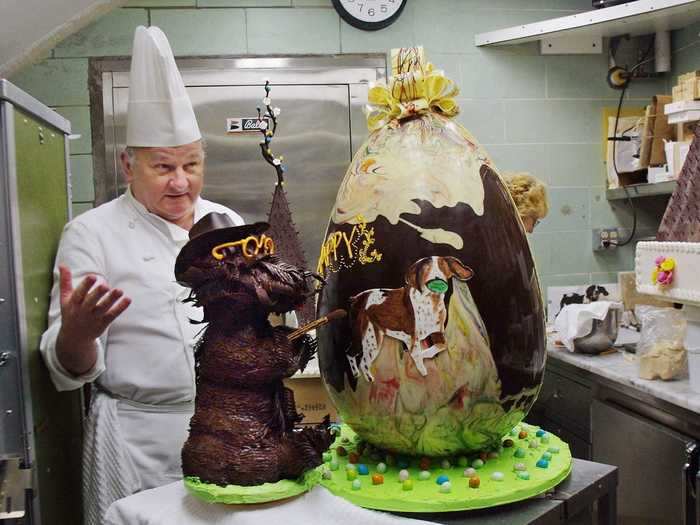
Located in the main kitchen on the ground floor, the Chocolate Shop is where chefs make desserts and centerpieces for White House functions.
It's also where chefs prepare eggs for the annual Easter Egg Roll and assemble the gingerbread replica of the White House that is put on display each holiday season.
During George Washington's and Thomas Jefferson's presidencies, the kitchen was staffed by slaves.
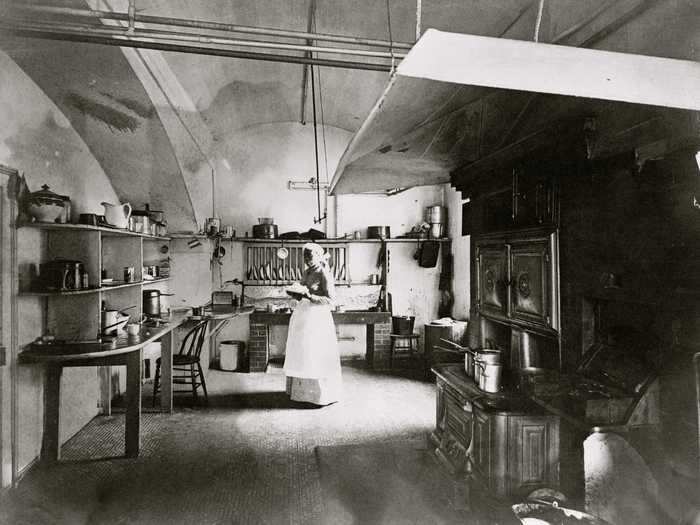
George Washington's enslaved chef from his Mount Vernon home, a man named Hercules, continued to prepare his food during his presidency (the White House was still under construction, so Washington worked out of New York and Philadelphia). A painting by Gilbert Stuart entitled "A Cook for George Washington" is presumed to be a portrait of him. Hercules escaped from slavery on Washington's birthday in 1797.
Thomas Jefferson brought several young enslaved women to the White House to learn French cooking under the tutelage of a French chef, including 14-year-old Ursula Granger Hughes, 15-year-old Edith Hern Fossett, and 18-old Frances Gillette Hern. Fossett and Hern continued to run Jefferson's kitchen when he retired to his home in Monticello.
For the first time in US history, both the executive chef and executive pastry chef at the White House are women.
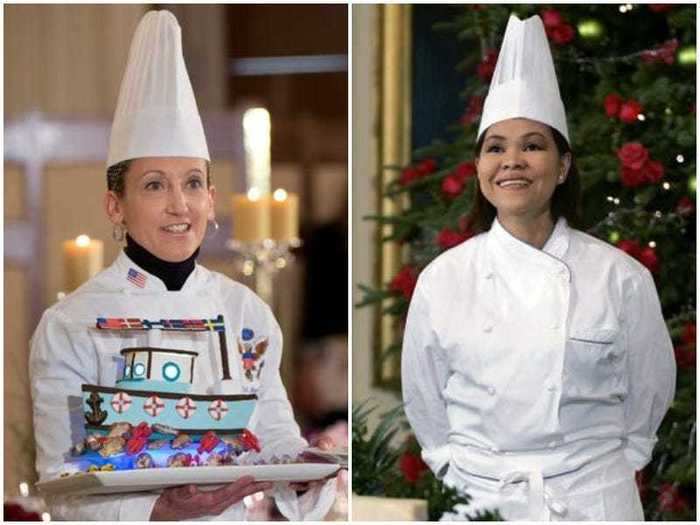
White House executive chef Cristeta Comerford is the first woman and first person of Asian descent to hold the role. She began working at the White House as an assistant chef in 1995. First lady Laura Bush appointed her to the executive chef role in 2005, and she has continued to serve in the Obama, Trump, and Biden administrations.
Susan Morrison is the first woman to serve as the White House executive pastry chef, in charge of creating and serving dessert menus for the White House's many functions. She took on the role in 2014, helping then-first lady Michelle Obama with the White House kitchen garden and beehive used to pollinate the garden.
The White House can accommodate 140 dinner guests and serve hors d'oeuvres to more than 1,000.
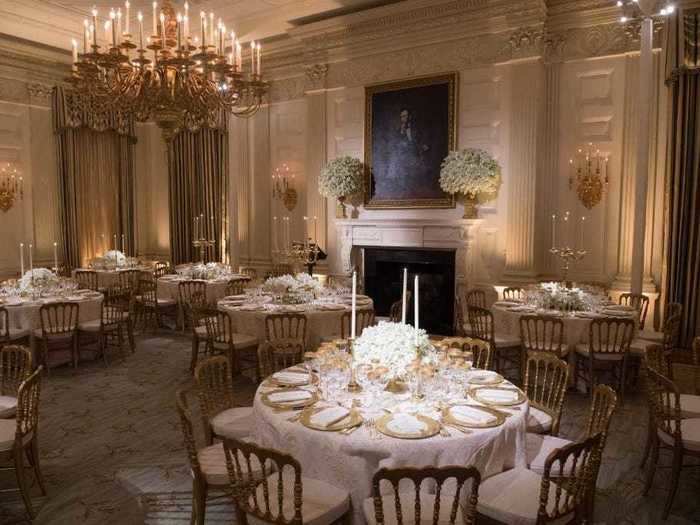
The first lady usually chooses the menu for state and holiday dinners, which are held in the State Dining Room.
Since 2005, the kitchen has been made entirely kosher for the annual White House Hanukkah party.
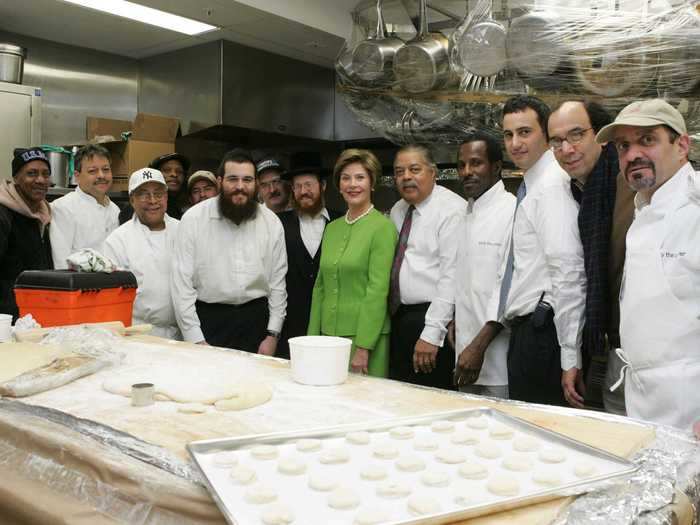
Making the White House kitchen kosher involves Saran wrap, tin foil, and vats of boiling water to cover and purify non-kosher surfaces. The chefs also use only certified kosher ingredients.
Matt Nosanchuk, who served as the White House's associate director of public engagement and liaison to the American Jewish community during President Obama's second term, previously told Insider that there used to be separate tables for kosher and non-kosher food at President George Bush's Hanukkah parties, but one year the labels were accidentally switched.
Rabbi Levi Shemtov, a Chabad rabbi in Washington, DC, who works closely with the White House staff to prepare kosher food, suggested making the entire reception kosher to avoid confusion in the future.
"Apparently President Bush said, 'Do whatever you need to do, it's fine,' and Rabbi Shemtov was like, 'Well, you're going to have to stay out of the kitchen for 24 hours before the party,'" Nosanchuk said.
The president has to pay for their own groceries.
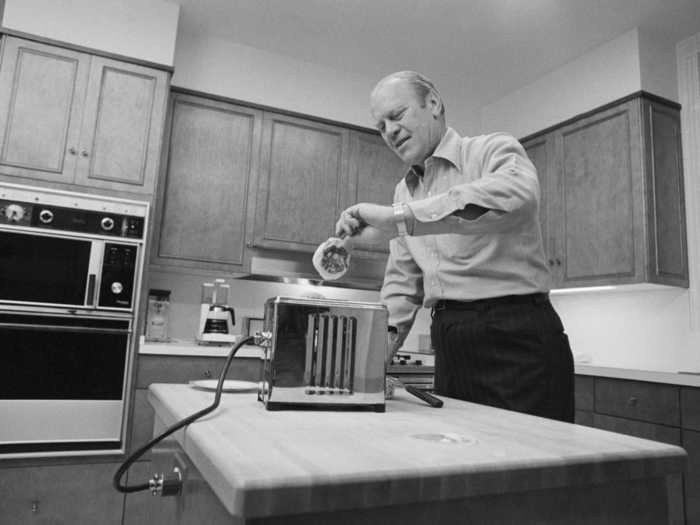
In an appearance on Jimmy Kimmel Live in 2018, Michelle Obama revealed that first families foot the bill for their own food.
"Nobody really tells you this stuff, and they let you get whatever you want," she said. "Like, if you say you want some exotic fruit — 'Yes ma'am, we'll get that right away.' And then you get the bill for a peach and it's like, 'That was a $500 peach!' I would tell Barack, 'Do not express pleasure for anything unless I know how much it costs.'"
The president's desk in the Oval Office has a button that can be used to order refreshments from the kitchen.
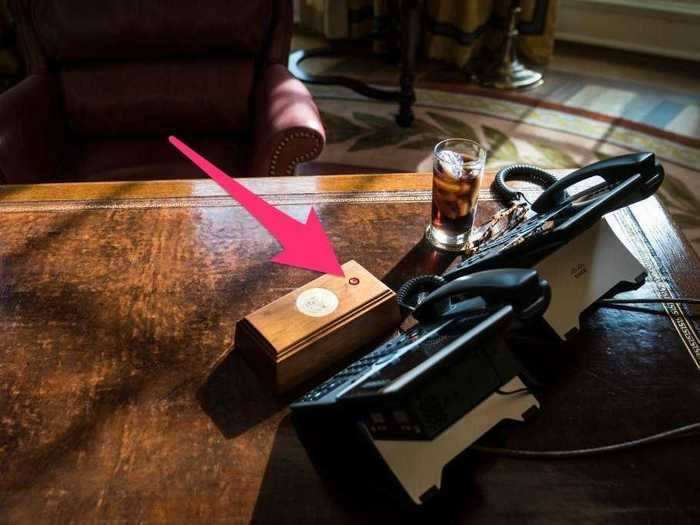
The call button is meant to be used to summon an aide whenever a president needs something, and it can be moved.
When hosting the Associated Press at the Oval Office in 2017, President Donald Trump showed the reporters the red button, which sits in a rectangular wooden box. After pressing it, a butler promptly arrived with a Coke for the president, the news wire service reported.
The vegetable garden started by Michelle Obama isn't just for show - the White House kitchen cooks with its produce.
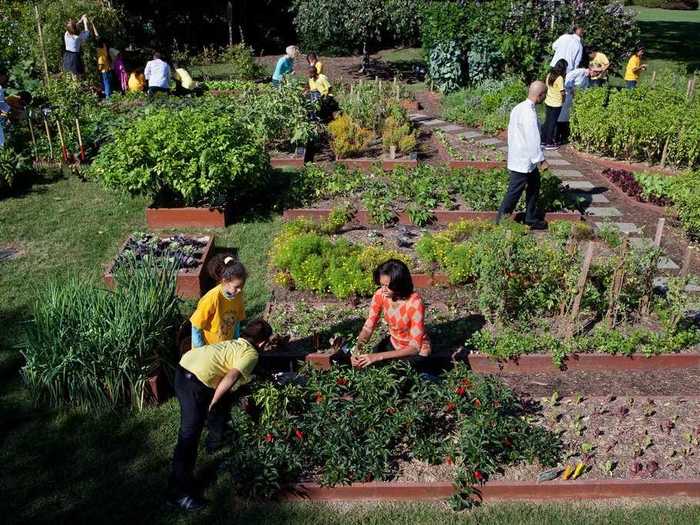
Michelle Obama planted the White House kitchen garden in 2008 as part of her initiative to encourage healthy eating for children. The garden covers 2,800 square feet on the South Lawn and produces 2,000 pounds of food every year, which is harvested and used by the White House kitchen staff. Leftover produce is donated to local food banks.
READ MORE ARTICLES ON
Popular Right Now
Popular Keywords
Advertisement